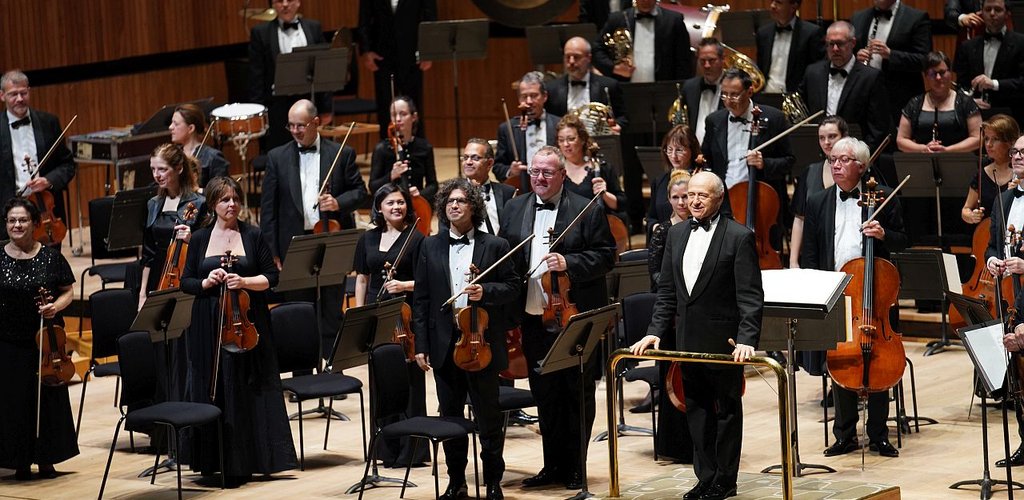The searing dissonances and lyricism of Mahler’s Ninth, the composer’s poignant confrontation with mortality, are drawn out with remarkable clarity. Critical review by Tim Ashley in The Guardian.
Mahler has long been central to Iván Fischer and the Budapest Festival Orchestra’s repertory and discography, so it comes as something of a surprise to realise how little of his work they have given us in concert in the UK over the years. Their London performance of the Ninth Symphony, part of their current European tour, helped redress the balance, as well as reminding us what superb Mahlerians they can be.
The composer’s last completed symphony, written after the diagnosis of the heart condition that later claimed his life, the Ninth is almost invariably described as one of classical music’s most far reaching confrontations with mortality. “Terrifying and paralysing, as the strands of sound disintegrate,” was Leonard Bernstein’s famous comment, though the pervading sense of dissolution is balanced by a deep, at times agonisingly poignant awareness of the beauties of the world soon to be left behind.
Fischer established the parameters and ambiguities at the outset, as the fragmentary themes that underscore the opening movement gave way to the nostalgia of the first subject, then to the sudden lurch into the minor key that brings violence in its wake. The BFO’s warm, dark sound and detailed, focused playing added to the gathering tensions as instrumental solos unwound over the relentless tread of the movement’s development, and searing dissonances clashed with moments of heart-rending lyricism.
The Ländler-cum-scherzo sounded grotesquely menacing, with its jolting tempi and rigid rhythms, the pervasive sense of dislocation amplified by the caustic fugatos and bitter ironies of the Rondo-Burleske that followed, though the trumpet call at its centre, an intimation of the main theme of the last movement, brought with it a moment of extraordinary radiance. The final Adagio, however, was utterly remarkable, an organic unfolding of sound and emotion, played with incomparable richness of tone, and profound in its beauty right to the end as sound, and with it life itself, finally seems to ebb almost imperceptibly away. Almost unbearably moving, and quite simply outstanding.

